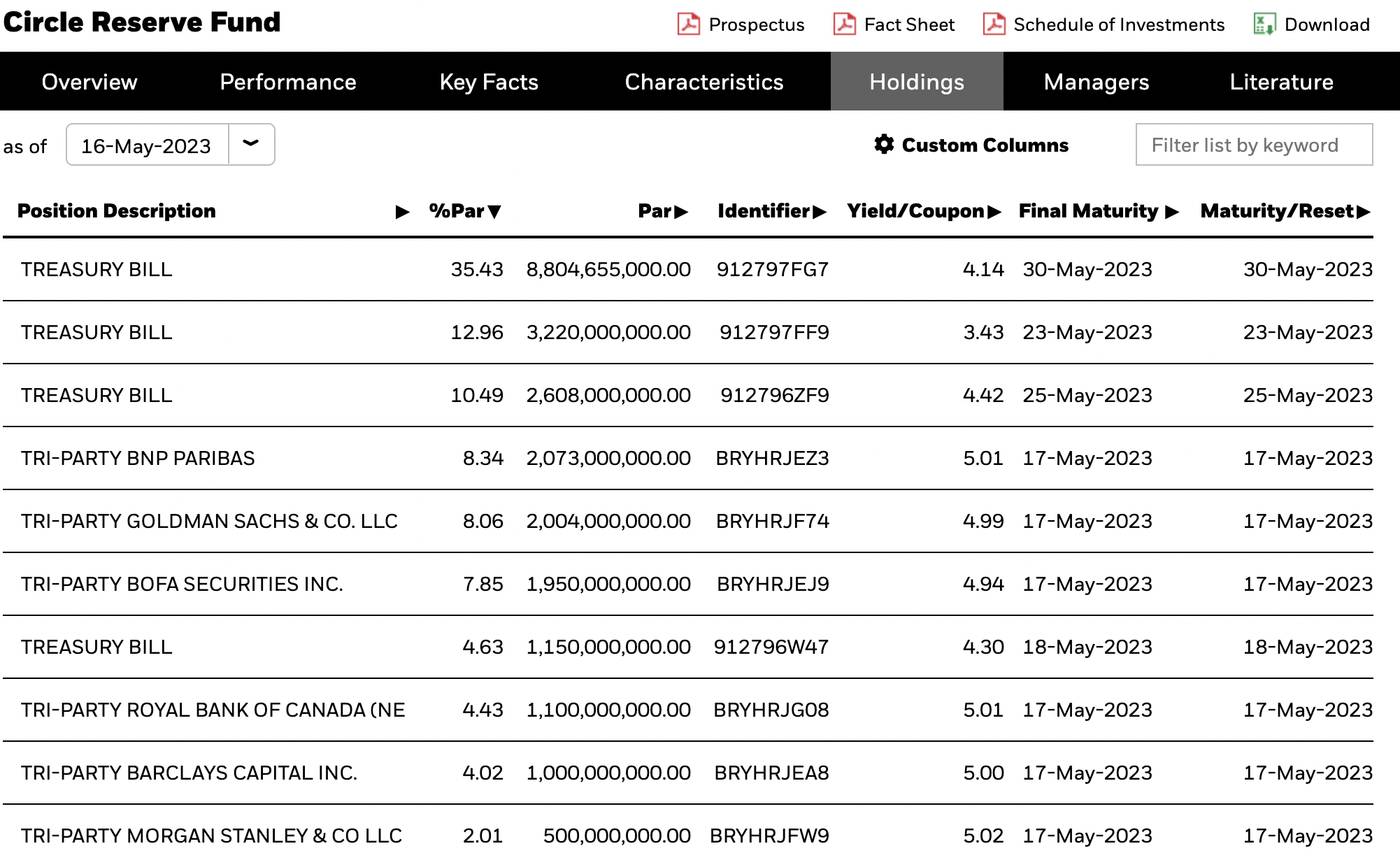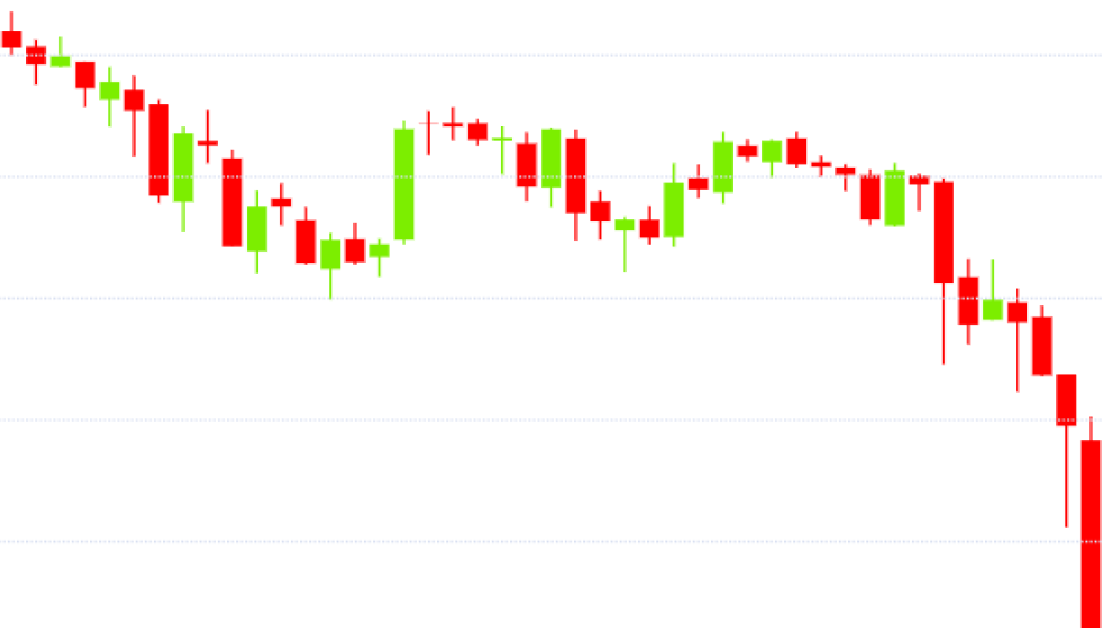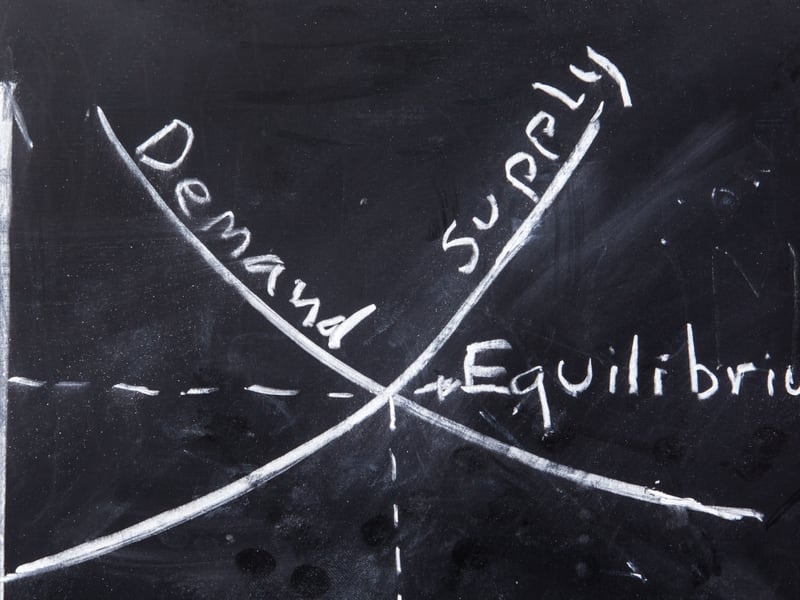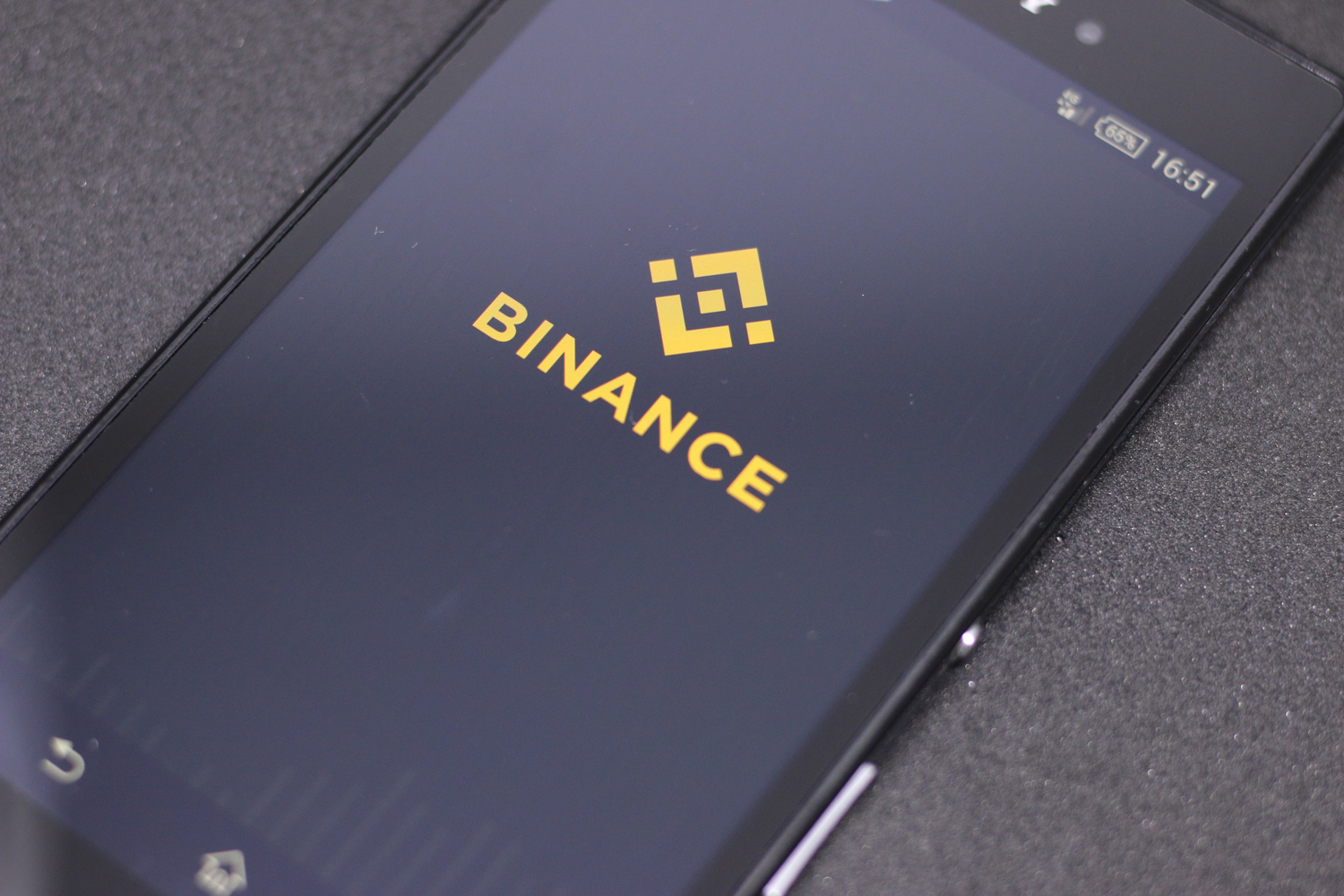USDC Issuer Circle Moves $8.7B to Repo Agreements to Protect Reserves From U.S. Government Default
:format(jpg)/www.coindesk.com/resizer/imb09KsNh9afdgQ4P24gQvq559Y=/arc-photo-coindesk/arc2-prod/public/DMIIPXHVZFBCPMOBTSEJ2YYG6U.png)
Krisztian Sandor is a reporter on the U.S. markets team focusing on stablecoins and institutional investment. He holds BTC and ETH.
Stablecoin issuer Circle Internet Financial is rebalancing the reserves backing the $30 billion USD Coin (USDC) as it braces for the risk of a U.S. government debt default.
The Circle Reserve Fund, managed by global investment management giant BlackRock, added $8.7 billion in overnight repurchase (repo) agreements to the portfolio as of May 16, according to the fund’s website. The so-called tri-party repo agreements involve banking giants such as BNP Paribas, Goldman Sachs, Barclays and Royal Bank of Canada.
Overnight repo transactions are effectively short-term collateralized loans. The borrower is selling a security – in this case, U.S. Treasurys – for cash, and agrees to buy back the collateral the next day for a slightly higher price. What’s really happening, though, is that big institutional investors with cash to spare are parking that with Wall Street dealers that need funding.
“While this plan has been underway for many months, the inclusion of these highly liquid assets also provides additional protection for the USDC reserve in the unlikely event of a U.S. debt default,” a Circle spokesperson emailed in a note.

Assets in the Circle Reserve Fund as of May 16 (BlackRock)
Circle is doing this as U.S. lawmakers are locked in discussions with President Joe Biden’s administration over raising the government’s ability to issue new debt, also known as the debt ceiling. Treasury Secretary Janet Yellen said that the Treasury Department is set to run out of cash by early June unless the debt limit is raised.
As part of the preparations, Circle’s fund ditched Treasurys that mature beyond the end of this month as of May 10, with rotating the assets into cash or government repo transactions instead, the Circle spokesperson said. The collateral for any such repo transactions exclude securities maturing within three days, the spokesperson added.
“We don’t want to carry exposure through a potential breach of the ability of the U.S. government to pay its debts,” Jeremy Allaire, chief executive officer of Circle, said last week in an interview with Politico.
Edited by Bradley Keoun.
DISCLOSURE
Please note that our
privacy policy,
terms of use,
cookies,
and
do not sell my personal information
has been updated
.
The leader in news and information on cryptocurrency, digital assets and the future of money, CoinDesk is a media outlet that strives for the highest journalistic standards and abides by a
strict set of editorial policies.
CoinDesk is an independent operating subsidiary of
Digital Currency Group,
which invests in
cryptocurrencies
and blockchain
startups.
As part of their compensation, certain CoinDesk employees, including editorial employees, may receive exposure to DCG equity in the form of
stock appreciation rights,
which vest over a multi-year period. CoinDesk journalists are not allowed to purchase stock outright in DCG
.
:format(jpg)/www.coindesk.com/resizer/imb09KsNh9afdgQ4P24gQvq559Y=/arc-photo-coindesk/arc2-prod/public/DMIIPXHVZFBCPMOBTSEJ2YYG6U.png)
Krisztian Sandor is a reporter on the U.S. markets team focusing on stablecoins and institutional investment. He holds BTC and ETH.
Learn more about Consensus 2024, CoinDesk’s longest-running and most influential event that brings together all sides of crypto, blockchain and Web3. Head to consensus.coindesk.com to register and buy your pass now.
:format(jpg)/www.coindesk.com/resizer/imb09KsNh9afdgQ4P24gQvq559Y=/arc-photo-coindesk/arc2-prod/public/DMIIPXHVZFBCPMOBTSEJ2YYG6U.png)
Krisztian Sandor is a reporter on the U.S. markets team focusing on stablecoins and institutional investment. He holds BTC and ETH.









